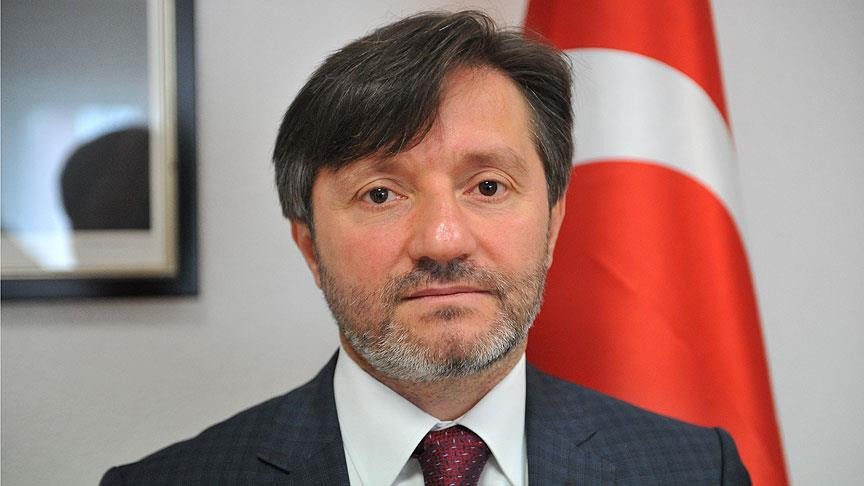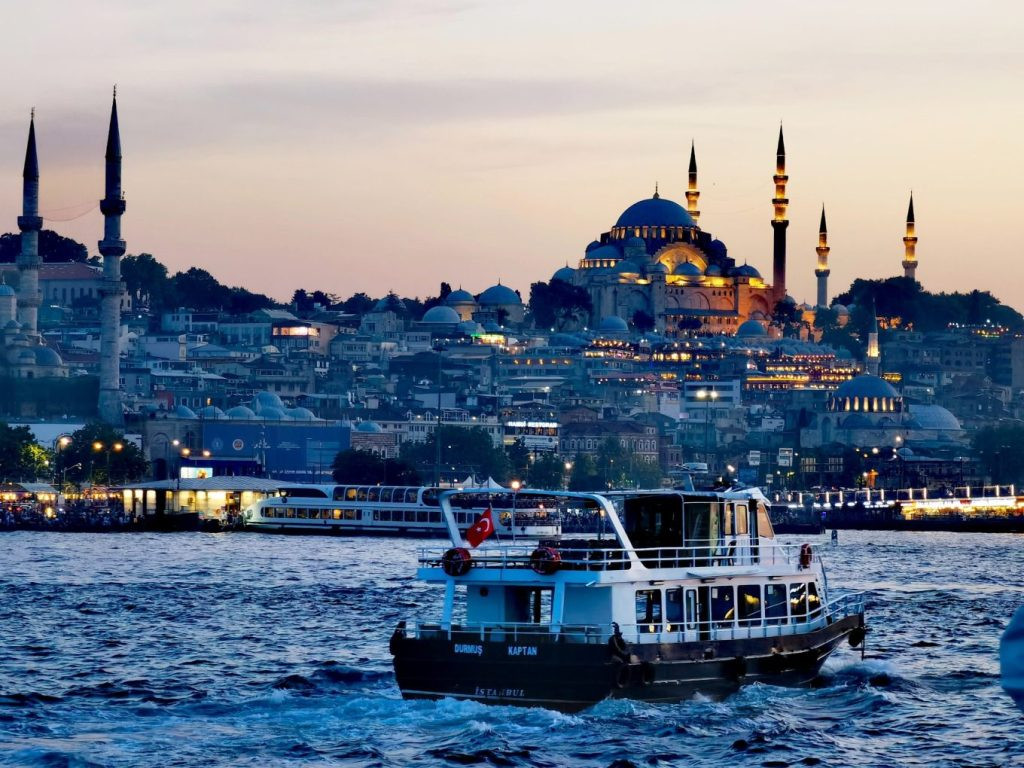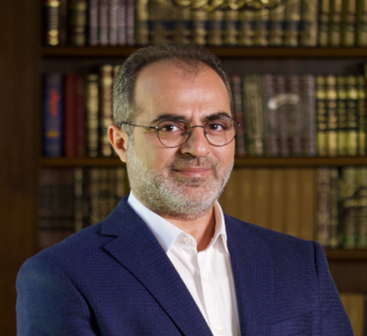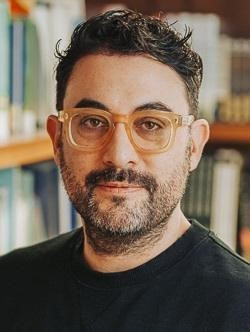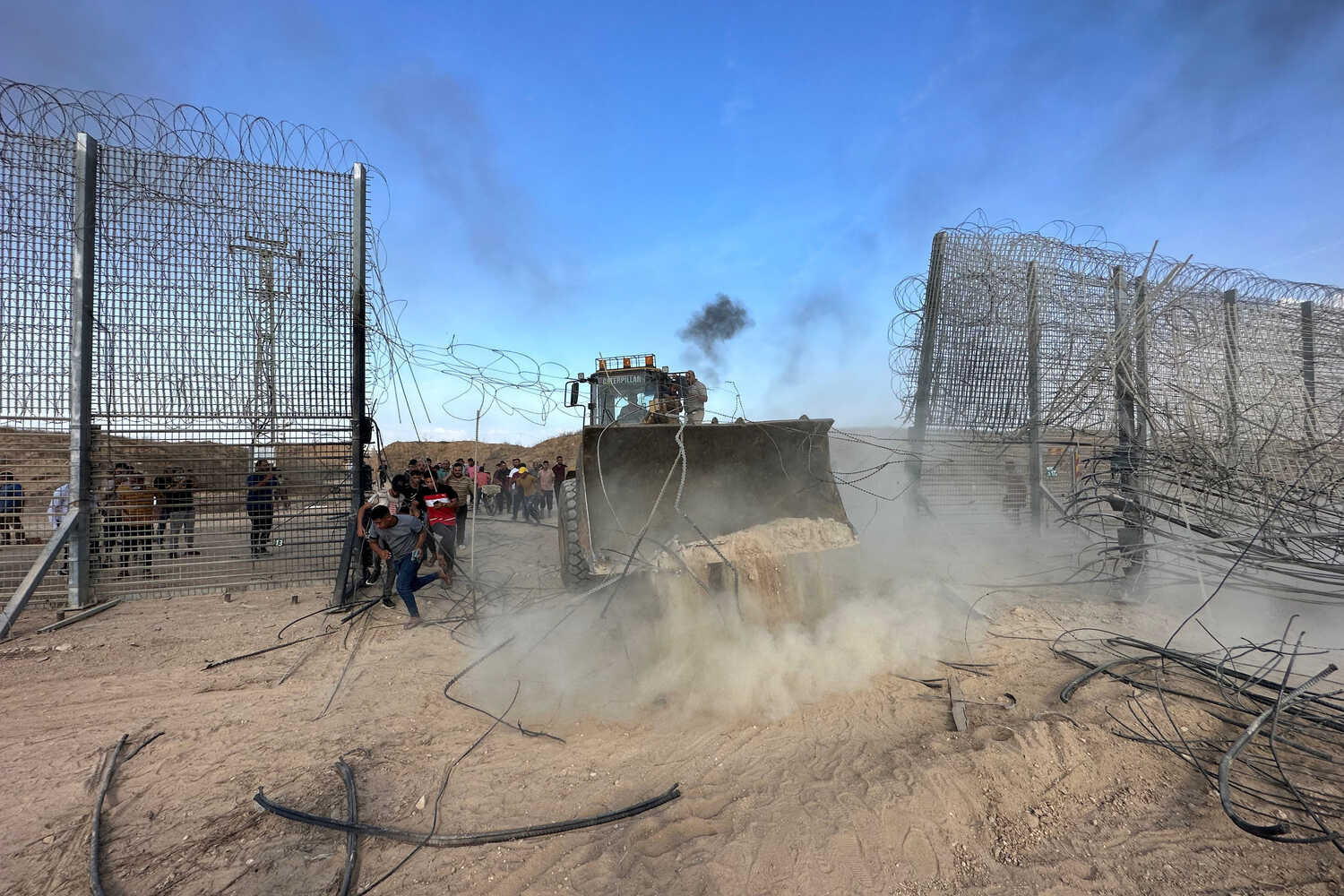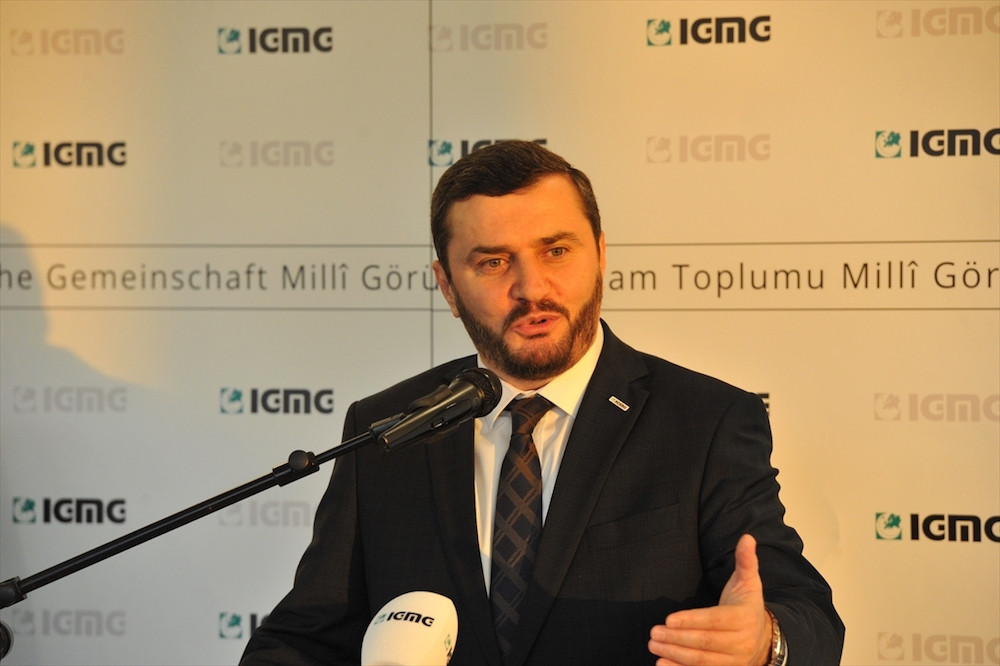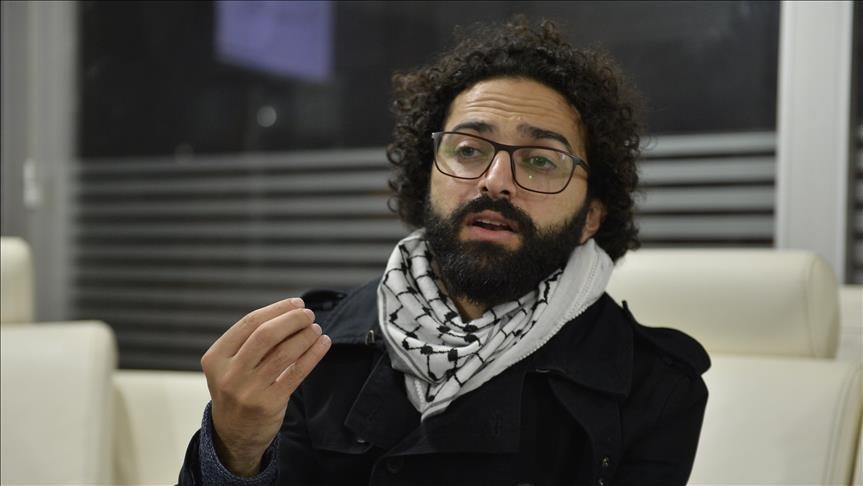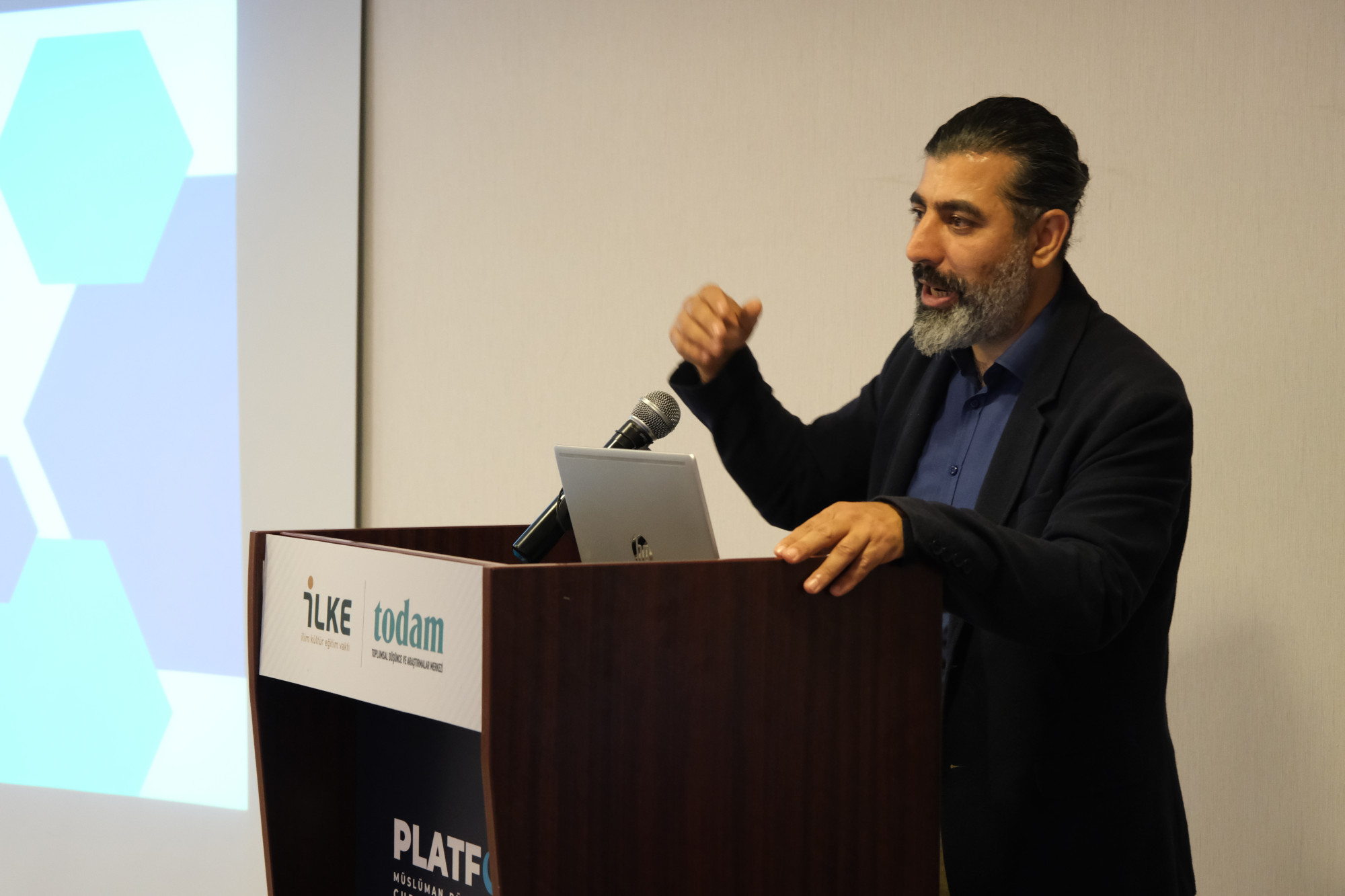
An Interview with Prof. Dr. Lütfi Sunar on the Intellectual Production of Muslim Communities
The series 'Contemporary Thought in the Muslim World' is an extensive publication comprising 11 volumes, providing a comprehensive perspective on the intellectual realm of Muslim communities. What motivated the necessity for such a comprehensive endeavour? In the context of Turkiye, what specific need does this work fulfil?
The purpose of the series "Contemporary Thought in the Muslim World" is to foster a nuanced comprehension of the diverse perspectives within Muslim societies. Our objective in these works is to incorporate the intellectual, philosophical, and political developments of societies that share similar historical and cultural processes with Turkiye into our intellectual landscape.
These works hold a pioneering status within their respective fields. They assess the intellectual, academic, and cultural agendas of contemporary Muslim communities and groups, while also offering insights for the future.
Public discourse often tends to generalize Muslim communities, leading to misconceptions and stereotypes. The works in this series are designed to challenge these stereotypes by showcasing the intellectual diversity within these communities. Moreover, we aspire for these works to illuminate ongoing dialogues, debates, and transformations within the intellectual circles of Muslim communities.
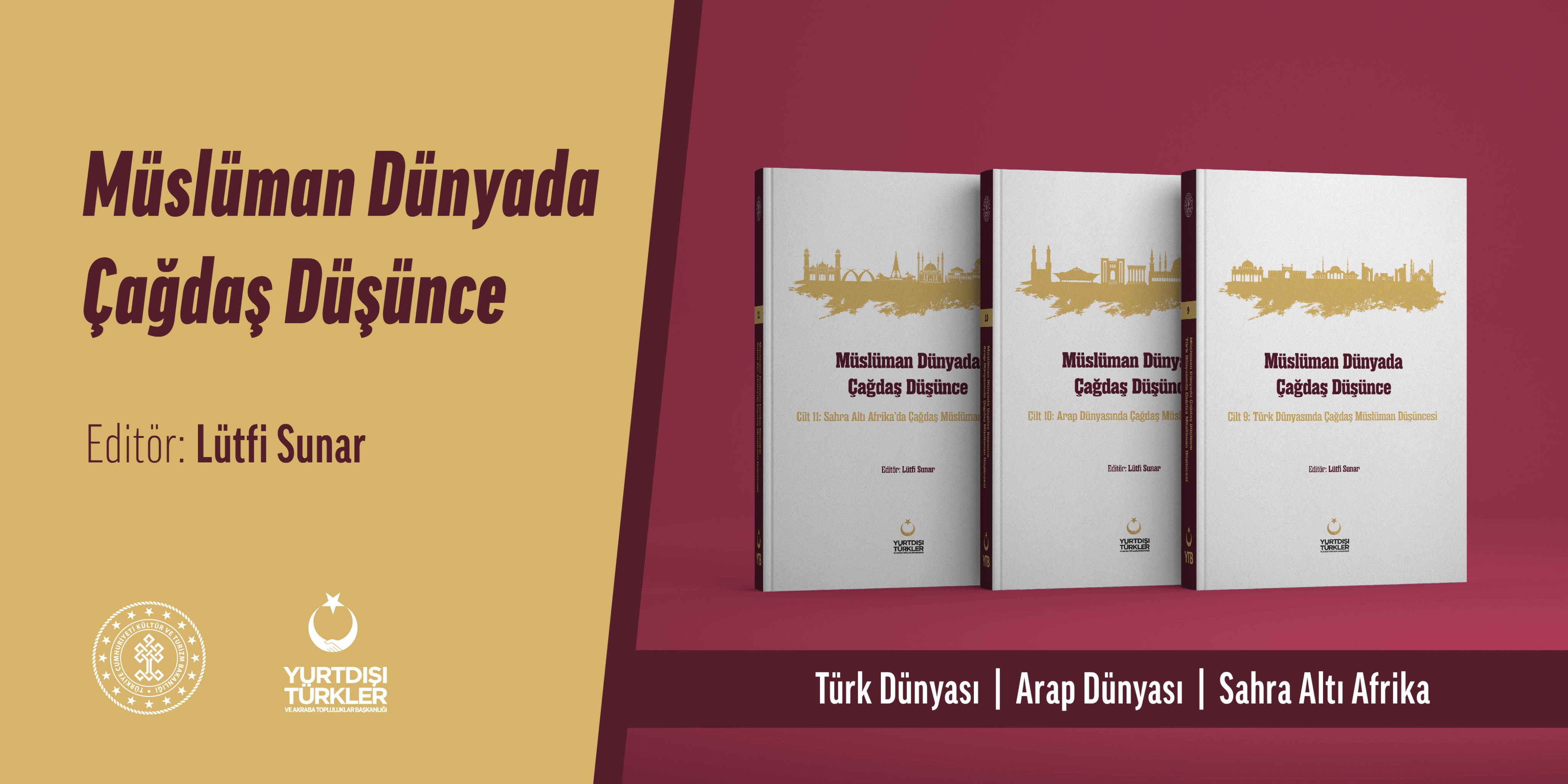
This comprehensive undertaking will provide scholars with a profound and diverse intellectual perspective, contributing to academic studies on Islam and Muslim societies. Consequently, it will contribute to a more refined and nuanced understanding of the contemporary Muslim world. When it comes specifically to Turkey, it is a country with a rich intellectual history and a dynamic contemporary society, predominantly Muslim. Due to its strategic geographical location, it serves as a bridge between the East and the West. Therefore, intellectual currents in Türkiye reflect a unique synthesis of diverse influences. A comprehensive work like this series provides an invaluable resource in contributing to contemporary thought in Turkiye, challenging simplistic or monolithic views about Turkish society and intellectual traditions. These works will help to realize the diversity, changes, continuities, and intersections in the Turkish thought with broader trends in the Muslim world.
We would like to understand the significance of the concept of "thought" in this series. Can the concrete activities of Muslims in the public domain, such as social movements, academic and social research institutions, and religious communities, be regarded as integral components of "thought"?
In an academic context, "thought" is generally used in a broad sense to encompass a range of intellectual activities and outputs. Although the term is sometimes narrowly interpreted to refer only to philosophical or theoretical discourse, in a study like "Contemporary Thought in the Muslim World," it is likely to be understood in a much broader sense. In this sense, we have approached thought in these works to include social, political, and economic thought. For example, the underlying ideas and philosophies behind social movements, the intellectual foundations and purposes of scientific and social institutions, and the theological and ethical frameworks guiding religious communities have been evaluated within this scope.
In this context, I believe that thoughts not only encompass abstract or theoretical ideas but also the ways in which these ideas are manifested in the world. In this sense, it is of great importance to me to understand how thoughts shape and are shaped by social, cultural, political, and institutional realities. I acknowledge that thinking is not solely a mental activity but deeply intertwined with the lived realities of individuals and communities.
Therefore, engaging in social movements, establishing relationships with scientific and social institutions, or being part of religious communities can indeed be seen as concrete activities that are integral to "thought."
These activities reveal the practical manifestations of intellectual currents in Muslim societies and also influence these currents. Understanding them, including the specific context of Turkiye mentioned in the previous statement, will provide valuable perspectives on the dynamic interaction of ideas and actions in the contemporary Muslim world.
The extensive 11-volume work showcases contributions from Muslim thinkers and intellectuals hailing from diverse corners of the world, including Bosnia to Malaysia, and Europe to Iran. This remarkable participation highlights the richness and diversity of contemporary Muslim thought. Moreover, the significance lies in the valuable potential of enhanced communication, connectivity, and collaborative platforms among these Muslim intellectuals. Considering the present era, what positive impacts does the interconnectedness of Muslim thinkers have on the progression of Muslim thought?
The exchange of ideas among Muslim thinkers from diverse geographical and cultural contexts will make valuable contributions to the advancement of contemporary Muslim thought in several ways.
One of the most significant contributions is the discovery of the diversity of perspectives within the Muslim world. This kind of dialogue promotes a more nuanced and inclusive understanding, allowing for a greater range of diverse perspectives. By doing so, it challenges tendencies towards homogenization and reveals the richness and diversity of contemporary Muslim thought.
Furthermore, these works also reveal the cross-interaction of ideas within Muslim societies. These interactions allow thinkers to be influenced by each other's works and consequently develop new perspectives or approaches. In this way, we stimulate intellectual growth and renewal.
In the present day, Muslim communities worldwide face common challenges such as reconciling tradition with modernity or negotiating their place in a globalized world. These works address the shared issues of Muslim societies. In these works, we aim to expand mutual exchange of ideas between communities and create a platform for thinkers to learn from each other's experiences and perspectives in order to collectively solve problems.
These dialogues also foster a sense of solidarity and mutual respect among Muslim thinkers. By strengthening intellectual connections between Muslim communities, we aim to build a broader sense of solidarity and network. In this way, we seek to highlight the impact of ideas across different societies.
Lastly, by creating shared platforms where Muslim thinkers can share their perspectives with a wider audience, it is evident that Muslim communities can contribute to global thought and understanding. Considering the global nature of ideas in today's world, it is crucial for the intellectual works and ideas of Muslim intellectuals to circulate more rapidly and reach a wider audience. There is a need for greater dissemination of the thoughts and works generated within the Muslim world to the global arena. This will facilitate the breaking of biases and the formation of a more accurate representation of Muslim societies.
In summary, promoting connections and dialogues among Muslim thinkers worldwide will significantly contribute to the dynamism, depth, and impact of contemporary Muslim thought.
During the modern era, there is a prevailing belief that intellectual production has decreased within Muslim societies. Do you believe there has been a disruption in the generation of ideas among Muslim communities, or have Muslims persistently pursued diverse intellectual endeavours despite varying circumstances?
When evaluating "intellectual production" in Muslim societies or any society, it is important to consider how the concept of "intellectual production" is defined and which criteria are used to measure it. Since the Muslim world encompasses a wide diversity of countries, cultures, and traditions, generalizations can be misleading.
Some argue that there has been a decline, particularly in specific traditional domains of intellectual endeavour such as philosophy, theology, and science, compared to the period known as the Islamic Golden Age (8th to 14th centuries). However, it is important to understand that intellectual production does not occur in a vacuum. Intellectual outputs are shaped by a complex set of socio-political, economic, and cultural factors. In the modern era, Muslim societies have undergone significant changes and faced numerous challenges, including colonialism, political turbulence, and economic constraints, which have also impacted their intellectual landscapes.
It is also important to note that in the modern era, intellectual contributions can take different forms compared to previous periods and may not always be recognized or evaluated in the same way. For example, significant outputs have been observed in areas such as literature, poetry, and various forms of cultural expression. Muslim societies have made important intellectual contributions in these domains. Additionally, there has been significant interaction with modern disciplines such as social sciences, law, politics, and more.
Furthermore, the modern period is characterized by a lively and complex debate on the relationship between Islam and modernity, the role of Islam in the public sphere, and issues related to human rights and democracy. Therefore, we can say that Muslim communities continue to engage in various intellectual endeavours under different conditions, which may not be traditionally recognized as "intellectual production."
The subcontinent of India, as well as regions like South Africa, are often associated with poverty in today's world. These regions have historically been significant for Muslims in terms of identity formation and intellectual production through post-colonial resistance. Despite the political and economic challenges faced in these areas, we can observe that thought continues to flourish and persevere. You have also dedicated two volumes of the 11-volume series to these regions. What can you say about Muslim thought that continues to thrive in the background despite war and poverty?
The subcontinent of India and regions like South Africa have indeed played significant roles in shaping contemporary Muslim thought. Despite challenging economic and political conditions such as poverty and conflict, these regions have maintained vibrancy in intellectual production. While there are numerous sources for this, we can particularly mention a few reasons below.
Challenges often give rise to resilience and innovation. Confronting challenges can prompt individuals and societies to question existing ideas and norms, reinterpret them, and explore innovations. In this sense, the early encounter with modernity and the legacy of struggle against colonialism in South Asia have created important dynamism for intellectual development.
On the other hand, these regions have a rich and powerful intellectual history. For example, the Indian subcontinent has been a significant centre of Islamic thought for centuries, making notable contributions in fields such as philosophy, theology, law, and spirituality. This intellectual heritage continues to inspire contemporary thought and provide knowledge to this day.
Poverty, the realities of war, and post-colonial struggles are important aspects of contemporary life in these regions. Dealing with these challenges has led to a rich perspective, inspiring experiences, and comprehensive ideas. For instance, thinkers from these regions have made pioneering contributions in areas such as social justice, economic equality, peacebuilding, and governance based on Islamic principles.
These regions are also characterized by a high degree of cultural synthesis, as Islamic thought interacts with other cultural and intellectual traditions. Historically, these societies have been multicultural, embracing religious diversity and social differences, which have kept intellectual life vibrant and diverse. While occasionally leading to intense conflicts, it is known that this dynamism has resulted in a cultural synthesis capability.
Finally, intellectual activity is an important aspect of identity construction. In the context of ongoing struggles for religious, ethnic, and national identities, as well as post-colonial identity formation, engaging in thought production and expression becomes a way for individuals to affirm their identities and negotiate their place in the world.
While the challenges faced by these regions are undeniably significant, they also provide a context in which dynamic and resilient intellectual traditions can flourish. Giving these regions their deserved place in the "Contemporary Thought in the Muslim World" series aims to underline the significant contributions they have made to global Muslim thought.
In the "Contemporary Thought in the Muslim World" series, you not only feature pioneering figures but also highlight the contributions of popular movements and scholarly institutions. By considering thought in a broader context alongside individual personalities, you have distinguished the work from similar studies. What are the key points that differentiate this series from other similar works?
Our works differentiate significantly in terms of perspective, content, and analysis from what has been produced to date. We have strived to achieve this distinction not only through the texts and authors featured in our works but also through the shaping of their content. In this regard, I can list the following features that set apart the "Contemporary Thought in the Muslim World" series:
Comprehensive Approach: The series takes a comprehensive approach, in contrast to many studies that focus solely on individual academics, philosophers, or theologians. It considers not only pioneering figures but also broader social and intellectual movements, academic organizations, and institutions that contribute to the intellectual landscape.
Incorporation of Diverse Perspectives: Covering a range of regions from the Indian subcontinent to South Africa, this series encompasses a wide spectrum of perspectives within the Muslim world, highlighting its rich diversity and demonstrating how intellectual production has been shaped by different geographic and cultural contexts.
Focus on the Present and Current Issues: While many works in this field concentrate on the pre-modern historical contributions of Muslim societies (such as the Islamic Golden Age) or their reactions to modernization, this series specifically focuses on contemporary thought that remains vibrant today, addressing current issues and trends that shape Muslim societies.
Integration of Various Disciplines: We aimed to integrate various disciplines and fields of thought, such as philosophy, theology, law, science, literature, and art, in these works. By doing so, readers can gain a more comprehensive picture of intellectual production in the Muslim world.
Intersection of Thought and Practice: These works give special emphasis to the interaction between thought and practice by featuring popular movements and academic organizations. They highlight how intellectual ideas are concretized in social and political action.
In summary, the "Contemporary Thought in the Muslim World" series stands out with its comprehensive and inclusive approach to exploring contemporary intellectual production in the Muslim world, its focus on diversity and the integration of thought and practice, setting it apart from other works in the field.
The production of knowledge and ideas is not confined to a specific geographical area. How has the intellectual accumulation generated in Muslim societies interacted with which regions in terms of geographical influence?
In these works, we have examined contemporary thought in Turkey, Iran, Egypt, the Indian subcontinent, the Balkans, North Africa, Southeast Asia, the West, the Turkic world, the Arab world, and Sub-Saharan Africa. With contributions from 127 authors representing 30 countries, these works are pioneering in their respective fields. They evaluate the intellectual, academic, and cultural agenda of Muslim societies and communities today, while providing a perspective for the future.
The intellectual world of Muslim societies is dynamic and interconnected. It not only reflects the rich tapestry of internal dialogues and exchanges but also engages with global trends and discourses.
In the Muslim world, there are numerous conversations and debates that encompass various regions and cultural contexts. These include discussions on different interpretations of Islamic law and theology, debates about the role of Islam in politics and society, and conversations on topics such as gender, human rights, and religious pluralism. For example, the work of thinkers in the Middle East has resonated with and influenced their counterparts in South Asia, Africa, and Southeast Asia.
Furthermore, Muslim intellectuals often engage with global intellectual trends and debates. They incorporate knowledge from modern philosophy, social sciences, and critical theory into their work. Many thinkers also address global issues such as democracy, climate change, economic inequality, and more. Additionally, many Muslim scholars actively participate in intercultural dialogues that promote mutual understanding and enrich intellectual perspectives. Therefore, when understanding contemporary thought, it is important to consider not only the internal interactions within the Muslim world but also its relationship with the global community.
Today, Muslims have an impact and influence that extends beyond their historical geographical boundaries. Muslim diaspora communities around the world often serve as bridges between different cultures and intellectual traditions. For instance, Muslim thinkers in Western countries integrate their cultural heritage with Western philosophical and social scientific traditions. Therefore, in these works, we have brought together the intellectual efforts of Muslim communities from all around the world, including Europe, America, Africa, and Russia, not just focusing on Muslim-majority countries.
In this context, it is necessary to consider not only local ideas but also the accumulation of global intellectual networks, academic communities, publishing houses, and universities. Muslim scholars are actively participating in academic networks that span different countries and regions. It is no longer possible to outline a framework of thought without considering the impact of scientists and intellectuals who publish in international journals, participate in global conferences, and collaborate with colleagues from around the world on research.
These interactions facilitate the exchange of ideas, promote mutual understanding, and contribute to the dynamism and richness of contemporary Muslim thought. Therefore, in these works, we not only consider geographical inclusiveness but also the diversity created by relationships and interactions. Different perspectives and traditions, as they encounter and sometimes clash with each other, can bring challenges and tensions, but they also offer opportunities for growth and enrichment.
The intellectual accumulation spanning a wide geography from Turkic states to Iran, from the Balkans to Southeast Asia is examined in the 11-volume series. What are the common grounds in the intellectual thought produced in these regions? What common trends have caught your attention?
Despite geographical and cultural differences among Muslim societies and thinkers, there are notable common grounds and trends that can be observed.
First and foremost, adherence to common Islamic sources is of significant importance. Across the vast geography of the Islamic world, a commitment to universal principles found in Islamic texts such as the Quran and Hadiths is often a significant common ground. Within the framework of these texts, diverse interpretations and understandings have been developed.
Furthermore, interaction with the modern world emerges as another common ground. Muslim societies and thinkers have actively grappled with the challenges and opportunities presented by the modern world since the early 19th century. This has led to contemplation and discussions on how Islam relates to modern science, technology, democracy, human rights, and economic justice.
In this sense, the encounters of Muslim societies and thinkers, both among themselves and with other societies, have given rise to a rich and intriguing cultural synthesis. Islamic thought often forms a unique synthesis as it encounters various cultures and traditions. For example, Turkish, Iranian, Balkan, and Southeast Asian societies have expressed Islam in ways specific to their cultural contexts. These expressions have gradually influenced other societies through translations and social movements over time.
If we approach the question from a different angle, we can examine the influence of local dynamics on intellectual development. How have these local dynamics shaped the intellectual accumulation? For instance, in what ways does the intellectual production in Southeast Asia differ from that in North Africa?
Local dynamics encompassing historical, cultural, socio-economic, and political factors can significantly shape intellectual production in a specific region. In this context, as you mentioned in your question, there are certain fundamental frameworks through which the intellectual production in Southeast Asia might differ from that in North Africa.
Southeast Asia has a distinct cultural context that has been shaped by interactions between indigenous traditions and various foreign influences, including Hinduism, Buddhism, Islam, and Western colonial powers. On the other hand, North Africa has been shaped by its proximity to Europe, its historical ties as part of the Islamic and Arab world, and influences from Sub-Saharan Africa. These different cultural contexts have led to unique intellectual developments, influencing how Islam is understood and practiced in each region.
Different historical experiences can also shape intellectual production. For example, colonialism and post-colonial nation-building experiences have had a significant impact on intellectual discourse in both regions, but in different ways. In Southeast Asia, this is reflected through an emphasis on syncretism, pluralism, and the negotiation of Islam with national and ethnic identities. In North Africa, intellectual discourse has been marked by topics such as Arab nationalism, Islamic political movements, secularism, and Islamist debates.
The political context also contributes to the shaping of intellectual production in different ways. For instance, North Africa has witnessed significant political upheavals in recent years, including the Arab Spring, which has influenced intellectual discourse on topics such as democracy, human rights, and the role of religion in politics. On the other hand, relatively stable political environments in countries like Malaysia and Indonesia have fostered intellectual discourses that reflect these different political realities.
Each region has its own scientific traditions and centers of learning that can influence the style and content of intellectual production. For example, the Islamic scholarly tradition in places like Al-Azhar University in Egypt differs in emphasis and approach from the traditions found in Southeast Asian centers of learning.
In conclusion, while there are common themes in intellectual production across the Muslim world due to shared beliefs and some common experiences, local dynamics significantly shape the contours and content of this production, leading to a rich diversity.
We would like to draw attention to Egyptian thought. Even though Egypt has been attracting attention due to autocracy and coups, you are emphasizing the intellectual accumulation of the country. In your opinion, beyond political events such as coups, revolutions, and elections, what kind of continuity does have in Egypt and other countries?
Egypt possesses a rich intellectual tradition that surpasses and prioritizes its contemporary political challenges. This intellectual tradition manifests itself in various ways:
Egypt, particularly Cairo where Al-Azhar University is located, has long been a significant centre for Islamic studies. Scholars in Al-Azhar and other institutions have produced a wealth of religious, philosophical, and legal thinking throughout the centuries. This scholarly tradition continues to thrive even in the face of political upheavals.
Egypt has also been a prominent centre for Arab literature and artistic production. From classical poetry and literature to modern novels, cinema, and music, this cultural output represents and shapes societal values, identities, and debates—an intellectual form of production.
Egypt has a history of influential public intellectuals who contribute to political and social thought. Even during periods of autocracy, Egyptian thinkers have continued to engage with topics such as nationalism, socialism, Islamic political thought, human rights, and democracy. The works of these intellectuals often reflect the struggle for political and social reform.
The continuity of intellectual thought in Egypt demonstrates the resilience of its intellectual tradition. Political events such as coups and revolutions can shape the intellectual landscape, influencing the types of ideas expressed and how they circulate. However, these events do not eliminate enduring forms of intellectual activity that persist in the face of changing political conditions.
Similar patterns can be observed in other countries, where strong intellectual traditions continue despite political upheavals or pressures. The specific manifestation of this continuity varies greatly, reflecting each country's unique historical, cultural, and socio-political context.
The world is encountering technological innovations every day, and this brings about various intellectual encounters. Do Muslim societies generate or have the potential to generate comprehensive and original ideas on globally relevant topics such as artificial intelligence, the space age, and the climate crisis? In other words, how can Muslim societies contribute to generating thoughts for the world by keeping up with the pulse of the time?
As mentioned above, Muslim societies are making valuable contributions to global debates today. They offer unique and valuable perspectives on many urgent issues worldwide. However, there are certain areas where their contributions stand out more prominently.
Muslim societies play a significant role in supporting global peace. The fundamental principles of Islam, such as justice, compassion, and respect for all human life, can serve as guiding principles for participation in peacebuilding efforts. Drawing from their diverse cultural and historical experiences, Muslim societies can offer unique perspectives on conflict resolution, reconciliation, and social healing. They can take the lead in facilitating interreligious and intercultural dialogues, promoting mutual understanding, and challenging prejudices.
In regions affected by conflicts, Muslim societies can advocate for peace by rejecting violence, promoting inclusive governance, and supporting initiatives that address the root causes of conflicts, such as poverty, inequality, and social injustice. On the global stage, countries with Muslim-majority populations can engage in mediation in conflicts, support international law, and advocate for disarmament and nonviolence. By doing so, Muslim societies can contribute to a more peaceful, just, and inclusive world.
Muslim societies have significant potential to contribute to sustainable development guided by the principles of social equity, environmental stewardship, and economic justice, which are integral parts of Islam. The concepts of "tawhid" (unity) and "ihsan" (excellence) within Islam can inspire sustainable practices that respect the environment, ensure fair distribution of resources, and promote social well-being. Countries with a majority Muslim population, with their young demographics and emerging economies, can support sustainable development by investing in green technologies, education, healthcare, and infrastructure development that balances progress and conservation.
Islamic finance, emphasizing risk-sharing and discouraging exploitation, can offer innovative and ethical approaches to financing sustainable development projects. Additionally, the tradition of "zakat" (obligatory charity) and "sadaqah" (voluntary giving) can be utilized for social development initiatives and addressing poverty and inequality within and among nations. Therefore, with an individual and collective perspective, Muslim societies can significantly contribute to achieving the United Nations Sustainable Development Goals.
Muslim societies have the potential to offer valuable perspectives and strategies for addressing global socio-economic inequalities. Rooted in principles of social justice, human dignity, and the obligation of "zakat," these societies can advocate for and implement economic models that prioritize justice and equal distribution of resources. For instance, the Islamic finance system, which discourages usury (riba) and promotes risk-sharing, can offer alternatives to traditional practices that often exacerbate wealth inequalities.
Additionally, countries with a majority Muslim population can express their concerns about global inequalities and exert pressure for reforms in global economic governance through active participation in South-South cooperation and international forums. Lastly, Muslim societies, leveraging their unique positions at the intersection of multiple world regions, can serve as bridges that promote understanding, dialogue, and collaboration among nations to collectively address socio-economic inequalities.
